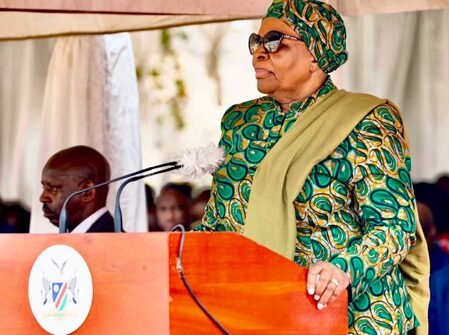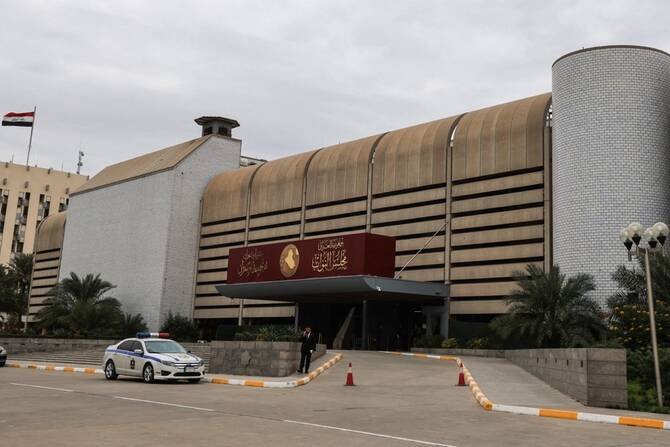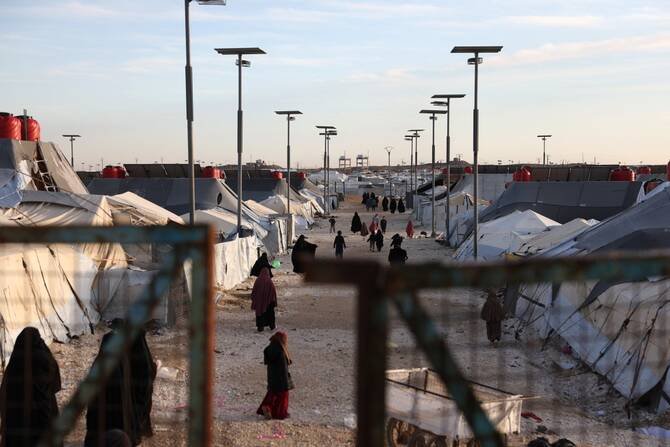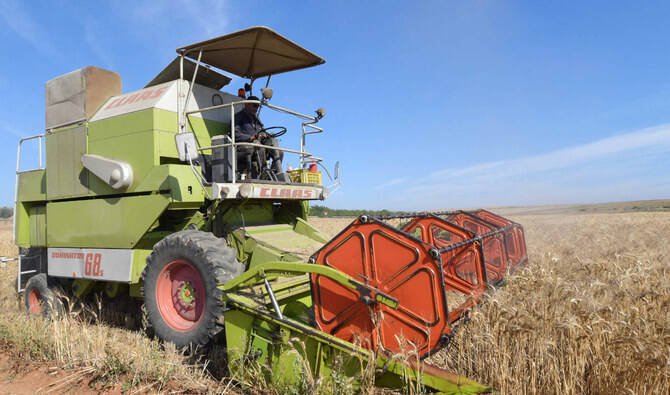
Windhoek, Oct 8 (IANS) Namibian President Netumbo Nandi-Ndaitwah on Wednesday urged the country’s young people to embrace modern, technology-driven agriculture, warning that the sector faces an aging workforce and growing climate challenges that threaten long-term food security.
Addressing the Agricultural Outlook Conference 2025 in Windhoek, the capital of Namibia, Nandi-Ndaitwah said the future of Namibia’s economy depends on revitalizing agriculture through youth participation, innovation, and investment, Xinhua News Agency reported.
Although food and nutrition security have improved, some level of undernourishment persists, she noted, adding that it is imperative for the country to create a conducive environment through connectivity, creativity, and access to finance for agriculture to serve its purpose.
She said agriculture remains the largest employer in Namibia, with about 70 percent of the population relying directly on livestock and crop value chains.
According to Nandi-Ndaitwah, the government has made agriculture one of the eight critical economic enablers as well as a key priority in the Sixth National Development Plan.
The plan links farming directly to industrialization, job creation, and food self-reliance, reflecting what she described as a “deliberate decision to place agriculture at the heart of Namibia’s development.”
“Agriculture is not only about food — it is about dignity, sovereignty, and our place in the global economy,” Nandi-Ndaitwah said, stressing that the government is committed to strengthening partnerships with farmers, agribusinesses, and investors to expand irrigation, improve market access, and promote value addition.
The president also urged the adoption of climate-resilient, smart farming methods, such as improved soil management, water-efficient irrigation, and digital innovation, to counter droughts, land degradation, and shifting weather patterns.
This year’s Agricultural Outlook Conference, under the theme “Harvesting the Future,” brought together farmers, researchers, agribusiness leaders, and international experts to explore strategies for inclusive growth, sustainability, and youth empowerment across Namibia’s agricultural value chains.
Earlier in September, Namibia unveiled a comprehensive national strategy to transform its crop sector, enhance food sovereignty, and reduce dependence on agricultural imports.
The strategy was formalised in the Namibian capital of Windhoek, where Minister of Agriculture, Fisheries, Water, and Land Reform Inge Zaamwani introduced the Namibian Agronomic Board’s annual report, Five-Year Integrated Business Plan, Five-Year Crop Value Chain Development Strategy, and Potato Development Scheme.
“Together, these milestones are not simply documents; they are a renewed commitment to transform the crop subsector and accelerate food self-sufficiency,” she said.
According to Zaamwani, the new strategic direction is encapsulated in the Five-Year Integrated Strategic Business Plan and the Five-Year Crop Value Chain Development Strategy.
She noted that the strategy directly responds to the country’s national goals under the Sixth National Development Plan, where agriculture has been declared a number one priority.
“The Crop Value Chain Development Strategy is designed to take a holistic value chain approach, addressing all segments of the crop subsector from inputs (seeds, fertilizers, equipment), production, processing, storage, and marketing,” she explained.
The minister added that the most immediate high-impact initiative is the Potato Development Scheme, which is expected to boost local production, create jobs across the potato value chain, and reduce reliance on imports. It will also promote agro-processing such as chips, crisps, and starch production, while serving as a model for similar schemes in other priority crops.
Zaamwani said that by unveiling these plans, the country is charting a course toward a future where the crop sector is sustainable, resilient, and globally competitive.








